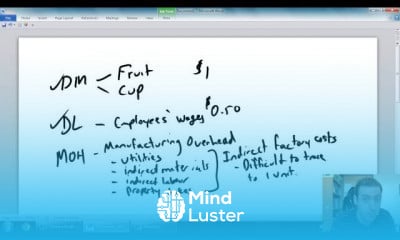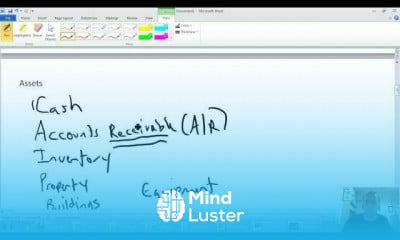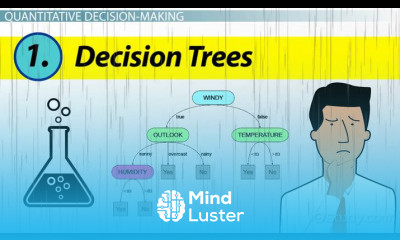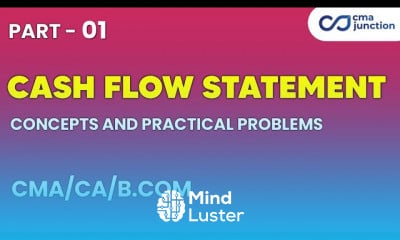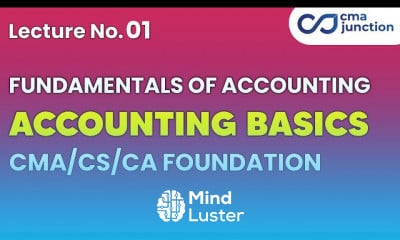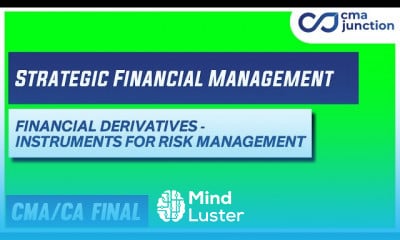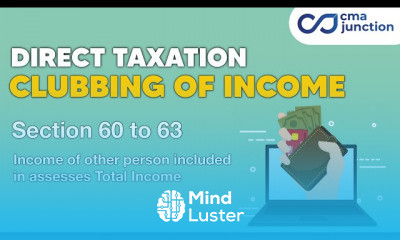Commodity Futures | Stock Futures | Financial Derivatives Instruments for risk management | SFM |
Share your inquiries now with community members
Click Here
Sign up Now
Lessons List | 4
Lesson
Comments
Related Courses in Business
Course Description
What are the types of financial derivatives?
Types of Derivatives
Forwards and futures. These are financial contracts that obligate the contracts' buyers to purchase an asset at a pre-agreed price on a specified future date. ...
Options. ...
Swaps. ...
Hedging risk exposure. ...
Underlying asset price determination. ...
Market efficiency. ...
Access to unavailable assets or markets. ...
High risk.What is financial derivatives with examples?
A derivative is an instrument whose value is derived from the value of one or more underlying, which can be commodities, precious metals, currency, bonds, stocks, stocks indices, etc. Four most common examples of derivative instruments are Forwards, Futures, Options and Swaps.What is financial derivatives and its types?
Derivatives are financial instruments whose value is derived from other underlying assets. There are mainly four types of derivative contracts such as futures, forwards, options & swaps.Features of Derivatives:
Derivatives have a maturity or expiry date post which they terminate automatically.
Derivatives are of three types i.e. futures forwards and swaps and these assets can equity, commodities, foreign exchange or financial bearing assets.Why Derivatives are dangerous?
Counterparty risk, or counterparty credit risk, arises if one of the parties involved in a derivatives trade, such as the buyer, seller or dealer, defaults on the contract. This risk is higher in over-the-counter, or OTC, markets, which are much less regulated than ordinary trading exchangesWhy is it called derivative?
I believe the term "derivative" arises from the fact that it is another, different function f′(x) which is implied by the first function f(x). Thus we have derived one from the other. The terms differential, etc. have more reference to the actual mathematics going on when we derive one from the other.
Trends
French
Improving Public speaking skills
Learning English Speaking
Graphic design tools for beginners
Data Science and Data Preparation
Formation efficace à l écoute de l
Graphic Design Basics
Artificial intelligence essentials
YouTube channel setup
MS Excel
Web Design for Beginners
Ubuntu linux
Figma Signing Up and Signing In
Electrical engineering for engineer
Python programming language
Web Design 101 Free Full Course
Advanced Logo design methods
Bioinformatics basics
Civil 3D for beginners
Figma for UX UI design
Recent
Qur anic reflections
Pillars of faith in islam
Pray in arabic word by word
Improve your Quran recitation
Read the Qur an
Islam in arabic basics
Qur an recitation
Arabic islamic words
Islamic vocabulary
Data Science and Data Preparation
Growing ginger at home
Gardening basics
Ancient watering techniques
Grow mushrooms
Growing onions
Veggie growing
Bean growing at home
Growing radishes
Tomato growing at home
Shallot growing











